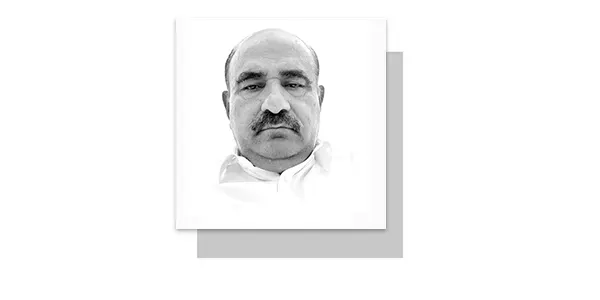THE Pakistan Army stands as a symbol of national pride, representing the resilience and strength of its people. Since Pakistan’s inception in 1947, the Army has played a crucial role in safeguarding the nation’s borders and ensuring its sovereignty. The sacrifices made by the army, both in times of war and peace, are etched into the collective memory of the Pakistani people.
Globally recognized for its prowess, the Pakistan Army invests in rigorous training, making its soldiers among the best in the world. Commitment to modernization and technological advancement has bolstered its capabilities, allowing versatility in operations from counter-terrorism to disaster relief efforts. The army is not merely a military institution but a symbol of the nation’s existence, standing as a bulwark against external threats.
In recent times, the Army has faced criticism, necessitating citizens to distinguish between constructive feedback and baseless accusations. While holding institutions accountable is fundamental, undermining the morale and reputation of the defence forces should be avoided. Balanced and accurate reporting by the media is crucial to prevent the spread of misinformation and maintain public trust in the defence forces.
Respecting the Pakistan Army goes beyond individual opinions; it is a collective responsibility for national unity. Divisive actions or rhetoric against the defence forces can weaken the fabric of society and hinder the country’s progress. The sacrifices made by the army, from battling terrorism to contributing to international peacekeeping missions, come at great personal cost and deserve recognition to reinforce the connection between the army and citizens.
In conclusion, the respect for the Pakistan Army is not just a matter of sentiment but a crucial element in safeguarding the nation’s integrity. The army’s historic significance, exceptional capabilities and role as a symbol of national existence demand unwavering support. While constructive criticism is essential, defending the army against unjust practices ensures it continues to stand tall as a beacon of pride for the people of Pakistan.
Moving into the contemporary era, the battlefield extends beyond traditional borders into the digital realm. Social media has become a powerful tool for communication and shaping perceptions, but it is not immune to malicious campaigns and misinformation, especially concerning the Pakistan Army.
Adversaries leverage social media platforms to spread disinformation, launch smear campaigns and tarnish the image of the country’s defence forces. These attacks, often subtle and employing tactics from fake news to manipulated visuals, require public vigilance. Recognizing when misinformation is weaponized against the institution safeguarding the nation is crucial.
False narratives about the Pakistan Army, propagated by hostile elements, can contribute to a negative public perception. Citizens must fact-check information, question news sources and critically analyze content before accepting it as truth. In the age of information, individuals play a pivotal role in countering false narratives and propaganda. By being aware of the tactics used by adversaries on social media, individuals can actively contribute to debunking misinformation. Sharing verified information, supporting official channels and participating in constructive discussions help build a collective defence against attempts to vilify the Pakistan Army.
The government shares the responsibility of addressing challenges posed by misinformation campaigns targeting the Pakistan Army. Collaborating with social media platforms to identify and counter disinformation, implementing effective communication strategies and educating the public about adversarial tactics are essential steps in safeguarding the army’s reputation in the digital age.
Ensuring the cybersecurity of national institutions, including the defence forces, is paramount. As attacks on digital infrastructure become more sophisticated, investing in robust cybersecurity measures becomes crucial to prevent unauthorized access, data breaches and other forms of cyber threats that could compromise sensitive information and contribute to misinformation campaigns.
As we navigate the digital age, the Pakistan Army faces not only physical threats but also challenges in the virtual domain. Understanding and countering the tactics employed by adversaries on social media is an integral part of defending the honour and reputation of our defence forces. By fostering a digitally vigilant society, we can collectively contribute to thwarting misinformation campaigns and preserving the respect and admiration that the Pakistan Army rightfully deserves.
—The writer is former Regional Executive Inclusive Development at NBP, Mirpur AK.
Email: aahmadofpaswal@yahoo.com
views expressed are writer’s own.










